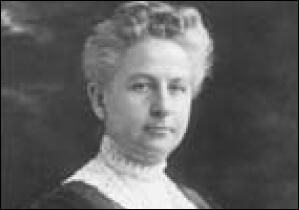On this day on 9th November
On this day in 1623 William Camden, English historian died. Camden was born in London in 1551. Educated at Christ's Hospital, St. Paul's School, and Oxford University, he began working at Westminster School in 1575 and was appointed headmaster in 1593.
In his free time Camden travelled the country and eventually published Britannia, a geographical survey of England, Scotland and Ireland. This was followed by Annales Britannia (1615), a description of the reign of Elizabeth I.
Camden also wrote an account of the trial of the conspirators in the Gunpowder Plot and a list of epitaphs in Westminster Abbey.
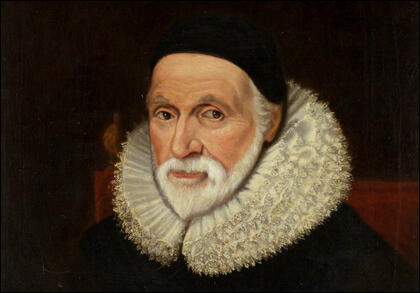
On this day in 1873 Fritz Thyssen, the son of the successful industrialist, August Thyssen (1842-1926), was born in Germany. In 1898 Thyssen joined Thyssen & Co a company owned by his father in the Ruhr. By the outbreak of the First World War the company employed 50,000 workers and produced 1,000,000 tons of steel and iron a year.
At a meeting with General Eric Ludendorff in October 1923, Thyssen was advised to go and hear Adolf Hitler speak. He did this and was so impressed he began to finance the Nazi Party.
Thyssen inherited his father's fortune in 1926. He continued to expand and in 1928 formed United Steelworks, a company that controlled more that 75 per cent of Germany's ore reserves and employed 200,000 people.
By 1930 Thyssen was one of the leading backers of the Nazi Party. The following year he recruited Hjalmar Schacht to the cause and in November, 1932, the two men joined with other industrialists in signing the letter that urged Paul von Hindenburg to appoint Adolf Hitler as chancellor. This was successful and on 20th February, 1933, they arranged a meeting of the Association of German Industrialists that raised 3 million marks for the Nazi Party in the forthcoming election.
Thyssen supported the measures that Hitler took against the left-wing political groups and trade unions. He also put pressure on Hitler to suppress the left of the Nazi Party that resulted in the Night of the Long Knives. However, as a Catholic, Thyssen objected when Hitler began persecuting people for their religious beliefs.
Thyssen resigned as state councillor in protest against Kristallnacht (Crystal Night). The following year he fled to Switzerland and Hitler promptly confiscated his property. Thyssen moved to France but was arrested by the Vichy government and was returned to Germany where he was sent to a concentration camp.
Thyssen was freed by Allied forces in 1945. Arrested he was convicted by a German court for being a former leader of the Nazi Party and was ordered to hand over 15 per cent of his property to provide a victims of Nazi persecution. Fritz Thyssen died in Buenos Aires on 8th February, 1951.
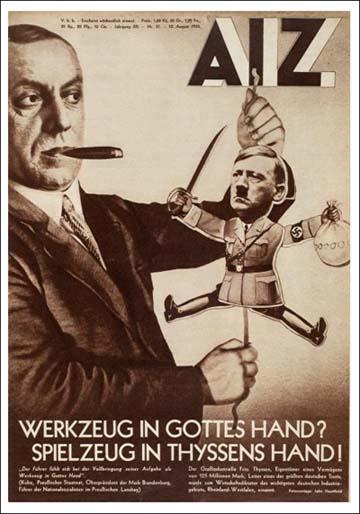
On this day in 1877 Helen Jack, the daughter of a master baker, was born in the Gorbals district of Glasgow. Her father, William Jack, was a member of the Conservative Party and a member of the Presbyterian Church in Scotland. Helen shared her father's religious views and became a Sunday school teacher.
In 1898 Helen married Reverend Alexander Montgomerie Crawfurd. His parish was in a slum area of Glasgow and she was deeply shocked by the suffering endured by the working classes. She wrote to a friend about the "appalling misery and poverty of the workers in Glasgow, physically broken down bodies, bowlegged, rickets."
Helen Crawfurd also became very interested in the work of Josephine Butler. She was especially impressed by The Education and Employment of Women. Crawfurd became convinced that the situation would only change when women had the vote and in 1900 she joined the National Union of Women's Suffrage Societies (NUWSS) in 1900. Crawfurd claimed “that if the Mothers of the race had some say, then things would be changed.” She held regular meetings in her Glasgow house and took part in protest meetings but she became increasingly frustrated by the lack success of the movement.
By 1905 the media had lost interest in the struggle for women's rights. Newspapers rarely reported meetings and usually refused to publish articles and letters written by supporters of women's suffrage. The Women's Social and Political Union (WSPU) decided to use different methods to obtain the publicity they thought would be needed in order to obtain the vote.
During the summer of 1908 the WSPU introduced the tactic of breaking the windows of government buildings. On 30th June suffragettes marched into Downing Street and began throwing small stones through the windows of the Prime Minister's house. As a result of this demonstration, twenty-seven women were arrested and sent to Holloway Prison.
On the 13th October, 1908 the WSPU held a large demonstration in London and then tried to enter the House of Commons. There were violent clashes with the police and 24 women were arrested, including Emily Pankhurst, who was sentenced to three months in prison.
In July, 1909, an imprisoned suffragette, Marion Wallace-Dunlop, refused to eat. Afraid that she might die and become a martyr, it was decided to release her. Soon afterwards other imprisoned suffragettes adopted the same strategy. Unwilling to release all the imprisoned suffragettes, the prison authorities force-fed these women on hunger strike. In one eighteen month period, Emily Pankhurst, who was now in her fifties, endured ten of these hunger-strikes.
Crawfurd agreed with the strategy of the WSPU and in 1910 she joined the organisation. Two years later she broke the windows of the Minister of Education's residence in central London, for which she was arrested and sentenced to one month's imprisonment in Holloway Prison.
In 1913 Helen Crawfurd was arrested for attacking police officers who were attempting to arrest the Emily Pankhurst at a public meeting in Glasgow. Although released later that night without charge, Helen was re-arrested the following night for smashing the windows of the army recruiting offices in the city, and was sentenced to one month's imprisonment in Duke Street Prison. Crawfurd immediately went on hunger-strike and after eight-days she was released under the terms of the Cat and Mouse Act.
In 1914 her husband and mother both died. Crawfurd was now one of the WSPU leaders in Scotland. In 1914 Crawfurd spoke at a meeting organised to protest against the imprisonment of two suffragettes in Perth. She was arrested and charged with making inflammatory comments and was sentenced to one month's imprisonment. She immediately went on hunger strike and was released five days into her sentence.
Later that year Crawford was arrested and charged for a bomb attack which damaged the Botanic Gardens. She was found guilty and received a prison sentence of two years. Again she went on hunger strike, her third in less than two years, and was once more released under the conditions of the Cat and Mouse Act.
On 4th August, 1914, England declared war on Germany. Two days later the NUWSS announced that it was suspending all political activity until the war was over. The leadership of the WSPU began negotiating with the British government. On the 10th August the government announced it was releasing all suffragettes from prison. In return, the WSPU agreed to end their militant activities and help the war effort.
After receiving a £2,000 grant from the government, the WSPU organised a demonstration in London. Members carried banners with slogans such as "We Demand the Right to Serve", "For Men Must Fight and Women Must Work" and "Let None Be Kaiser's Cat's Paws". At the meeting, attended by 30,000 people, Emily Pankhurst called on trade unions to let women work in those industries traditionally dominated by men.
Helen Crawfurd, disagreed with this strategy and like other militants such as Sylvia Pankhurst, Charlotte Despard, Helena Swanwick, Olive Schreiner, Emmeline Pethick-Lawrence, Alice Wheeldon, Hettie Wheeldon and Winnie Mason eventually joined the Women's Peace Party. She also became active in the Independent Labour Party (ILP) and began to organise Scottish women in a campaign to oppose Britain's involvement in the First World War.
Soon after the outbreak of war, private landlords in Glasgow began to increase rents. This was seen as a blatant example of war-time profiteering. In response to this action, Helen Crawfurd, Mary Barbour and Agnes Dollan established the Glasgow Women's Housing Association. Crawfurd was elected secretary and helped organise a campaign of non-payment of rents. The group gained support from the Clyde Workers' Committee and the Independent Labour Party.
On 17th November 1915 the three organizations took part in one of the largest demonstrations in Scottish political history. Tens of thousands marched through the streets of Glasgow. The government was shocked by this show of force and passed the Rent Restriction Act which froze working class rents, not only in Glasgow but throughout Britain, for the duration of the war.
In 1915 and her friends, Mary Barbour and Agnes Dollan, set up the Glasgow branch of the Women's International League. The following year the three women established the Women's Peace Crusade (WPC). Other members included Ethel Snowden and Selina Cooper.
In February 1916 the Clyde Workers' Committee became involved in a dispute at Beardmores Munitions Works in Parkhead. The government claimed that the strike was a ploy by the CWC to prevent the manufacture of munitions and therefore to harm the war effort. On 25th March, Arthur McManus, David Kirkwood, Willie Gallacher and other members of the CWC were arrested by the authorities under the Defence of the Realm Act. The men were eventually court-martialled and sentenced to be deported from Glasgow to Edinburgh. Helen Crawfurd took part in the protests against these deportations and as a result was arrested by the police. However, she was released without charge.
Crawfurd was a member of the British delegation to the Conference of the Women's International League at Zurich in 1919. This delegation included Ethel Snowden, Charlotte Despard, Ellen Wilkinson and Emmeline Pethick-Lawrence. This delegation chose Helen Crawfurd to make the report to the Conference on their behalf.
After the war Crawfurd continued as one of the leaders of the Independent Labour Party. However, she became increasingly disillusioned with the political direction of the ILP. She argued that it had abandoned its socialism and this feeling increased after attending the Second Congress of the Third International in Moscow in 1920 where she met Lenin, who convinced her that he believed that women had an important role in the global communist movement.
in April 1920 Crawfurd joined forces with Willie Gallacher, Arthur McManus, Harry Pollitt, Tom Bell and Willie Paul to establish the Communist Party of Great Britain (CPGB). McManus was elected as the party's first chairman and Bell and Pollitt became the party's first full-time workers.
Crawfurd was appointed to the executive committee and given the task of increasing female membership of the CPGB. According to her biographer, Michael Byers: "Helen took to this task with great enthusiasm, editing a separate women's page in the official newspaper of the CPGB 'The Communist', in which she sought to inform ordinary women of the way in which communism could liberate them from both capitalist and sexual domination."
During the Russian Civil War Crawfurd played a leading role in the work of the Workers International Relief Organisation (WIR). In 1922 she became secretary of the WIR and arranged for help to be given to aid economically distressed regions in other parts of Europe. This included mining communities during the 1926 General Strike.
Helen Crawfurd supported the leadership of A. J. Cook and was appalled when the TUC General Council announced that the General Strike was over. Crawfurd argued: "The General Council of the Trades Union Congress, in order to save their miserable faces and to whitewash themselves, must needs find a scapegoat and put their sins upon it and send it out into the wilderness - and they foolishly imagine that in their recent attempt to vilify the leaders of the miners, they have as easily hoodwinked the British workers as the children of Israel fondly imagined they could hoodwink their God.... If Cook could be made to hear the voice of the whole working class, who are solidly behind him and the miners, they would never hesitate. Only the operation of the embargo without waiting for a decision by the men who betrayed the General Strike will assure them of this support."
In 1927 Helen Crawfurd helped to establish the League Against Imperialism. Other members included Albert Einstein, Jawaharlal Nehru, Fenner Brockway, Arthur McManus, Willy Münzenberg, and Reginald Bridgeman.
Crawfurd was active in the fight against the rise of fascism in the 1930s. Unlike some members of the Communist Party of Great Britain she supported Britain's involvement in the Second World War.
In 1946 Helen Crawfurd was elected the first woman councillor on Dunoon Council. The following year she married fellow Communist Party member George Anderson. She also wrote her memoirs, which unfortunately have never been published.
Helen Crawfurd died at her home in Dunoon on 18th April 1954.
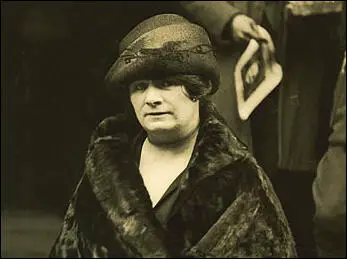
On this day in 1905 Erika Mann, the daughter of the novelist, Thomas Mann, was born in Munich. Her mother, Katia Pringsheim Mann, was the daughter of a wealthy, Jewish industrialist family who owned coal mines and early railroads.
In January 1932, Erika Mann was asked to read a poem by Victor Hugo to a women’s pacifist group. However, a group of Sturmabteilung (SA) men were in the audience and they heckled her. One of them shouted out: "You are a criminal... Jewish traitress! International agitator!" She later wrote: "In the hall, everything became a mad scramble. The Stormtroopers attacked the audience with their chairs, shouting themselves into paroxysms of anger and fury." The Nazi newspaper, Völkischer Beobachter, reported that Mann was "a flatfooted peace hyena" with "no human physiognomy". Mann sued for damages and after examining several photographs of her the judge declared that her face was in fact legally human."
Mann now became heavily involved in politics. "I realised that my experience had nothing to do with politics - it was more than politics. It touched at the very foundation of my - of our - of the existence of all." Mann joined together with a group of left-wing activists, including Therese Giehse, Walter Mehring, Magnus Henning, Wolfgang Koeppen and Lotte Goslar, to establish a cabaret in Munich called Die Pfeffermühle (The Peppermill).
The production opened on 1st January, 1933. Erika Mann wrote most of the material, much of which was anti-Fascist. It ran for two months next door to the local Nazi headquarters, and, since it was so successful, was preparing to move to a larger theatre when the Reichstag went up in flames. Erika and Klaus were on a skiing holiday while the new theatre was being decorated and arrived back in Munich to be warned by the family chauffeur, that they were in danger. Later, Klaus wrote that the chauffeur "had been a Nazi spy throughout the four or five years he lived with us... But this time he had failed in his duty, out of sympathy, I suppose. For he knew what would happen to us if he informed his Nazi employers of our arrival in town."
Adolf Hitler gained power in January 1933. Soon afterwards, a large number of writers were declared to be "degenerate authors". This included Heinrich Mann, Bertolt Brecht, Hans Eisler, Ernst Toller, Thomas Heine, Arnold Zweig, Ludwig Renn, Karl Marx, Sigmund Freud, Franz Kafka and Hermann Hesse. On 10th May, the Nazi Party arranged the burning of thousands of "degenerate literary works" were burnt in German cities.
Thomas Mann was on holiday in France when Hitler took power. Erika and her brother, Klaus Mann, were warned by the family chauffeur that the Mann family were in danger. Later, Klaus wrote that the chauffeur "had been a Nazi spy throughout the four or five years he lived with us... But this time he had failed in his duty, out of sympathy, I suppose. For he knew what would happen to us if he informed his Nazi employers of our arrival in town."
Erika made contact with her parents, and warned them not to return to Munich. Mann, who was on holiday at the time, was warned that he faced the possibility of being arrested if he returned to Germany. In September, 1933, Thomas, Katia, Gottfried, Monika, Elisabeth and Michael Mann settled in Küsnacht, near Zurich. Erika and Klaus decided to remain in Germany to continue the fight against fascism.
Erika Mann was especially interested in the impact of Nazi ideology on children. "All the power of the regime - all its cunning, its entire machine of propaganda and discipline - is directed to emphasize the program for German children. It is not surprising that the Nazi State considers it of primary importance that the young grow up according to Hitler's wishes, and the plans set in Mein Kampf... The Führer realizes that the education of German youth will have a tremendous influence on Germany's future - and on Europe's and the world's. He gives the problem the attention it deserves."
Mann quotes Hitler as saying in Mein Kampf (1925): "Beginning with the primer, every theater, every movie, every advertisement must be subjected to the service of one great mission, until the prayer of fear that our patriots pray today: Lord, make us free, shall be changed in the mind of the smallest child into the cry: Lord, do Thou in future bless our arms... All education must have the sole object of stamping the conviction into the child that his own people and his own race are superior to all others."
In her book, School for Barbarians, Mann argues that the Weimar Republic made a serious mistake to create a political neutral curriculum. "One subject, political propaganda, was missing from the curriculum. The German Republic refused to influence its citizens one way or the other, or to convince them of the advantages of democracy; it did not carry on any propaganda in its own favour. This proves to have been an error... Unused to self-rule, the German people submitted to a new State which made itself the master, and forced the people to be its servants."
Mann reported that "in the winter of 1933, was that all teachers of non-Aryan or Jewish descent were relieved of their posts. An edict was issued on July 11, 1933, that included teachers with all other State officials, ordering them to subordinate their wishes, interests, and demands to the common cause, to devote themselves to the study of National Socialist ideology, and 'suggesting' that they familiarize themselves with Mein Kampf. Three days later, a 'suggestion' was sent to all those who still maintained contact with the Social Democratic Party, that they inform the Nazi Party of the severance of these connections. Committees were formed to see that it was carried out, and whoever hesitated was instantly dismissed. The purge was on. It was decided, in Prussia first (November, 1933), and later in all German schools, that public school teachers must belong to a Nazi fighting organization; they were to come to school in uniform, wherever possible, and live in camps; and, during the final examinations, they were to be tested in military sports."
Erika Mann remained in constant danger. Her friends told her that one way she could protect herself was to marry a foreigner. In 1935, the poet W.H. Auden, who was an homosexual, offered to marry her. She agreed and visited England for the ceremony in Colwall. When the German government heard what she had done, she was stripped of her German citizenship. According to Time Magazine, "at the risk of her life, she returned secretly to Germany to get some of her father's manuscripts."
Erika Mann moved to the United States and joined the anti-fascist American Artists' Congress (AAC), a group closely associated with the Communist Party of the United States (CPUSA). Other members included Rockwell Kent, Stuart Davis, Boardman Robinson, William Gropper, Max Weber, George Biddle, William Zorach, Yasuo Kuniyoshi, Philip Evergood, Nathaniel Dirk, Arnold Blanch, Victor Candell, Mervin Jules and Alexander Z. Kruse.
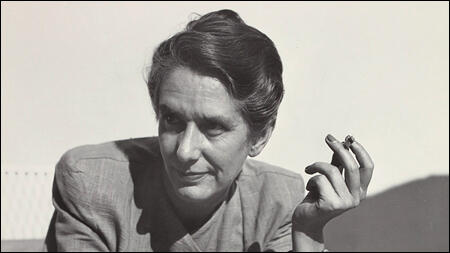
On this day in 1906 Dorothea Beale died. Beale, the daughter of Miles Beale and Dorothea Complin, was born in London on 21st March, 1831. Miles Beale, a surgeon, employed a governess for Dorothea and her ten brothers and sisters. At sixteen Dorothea was sent to a school in Paris for a year.
Dorothea became a student at Queen's College for Women when it first opened in 1848. Dorothea did so well that when she finished her studies they appointed her as their first woman mathematics tutor. However, Dorothea gradually became dissatisfied with the college and in 1856 became Head Teacher at Casterton School. Attempts to make changes to the way the school was organised ended in failure and she left within a year of being appointed.
For the next twelve months she concentrated on writing a Textbook of General History. This became a popular book with teachers and helped her to be appointed as Head Teacher of Cheltenham Ladies College. At the time the school had only a moderate reputation but under Beale's leadership it became one of the most highly regarded schools in the country. The traditional education of girls had emphasized the development of accomplishments such as music and drawing. Dorothea Beale, however, was determined to provide a much more academic education.
Beale used her success at Cheltenham Ladies College to demonstrate what a good school could achieve. She was also involved in trying to improve the national standard of education and played a prominent role in the Head Mistresses' Association and The Teachers' Guild.
In 1865 Dorothea Beale joined with Emily Davies and Elizabeth Garrett and eight other women to form a discussion group called the Kensington Society. In 1867 the group drafted a petition asking Parliament to grant women the vote. One of their supporters, John Stuart Mill, added an amendment to the 1867 Reform Act that would give women the same political rights as men. However, the amendment was defeated by 196 votes to 73.
Members of the Kensington Society were very disappointed when they heard the news and decided to form the London Society for Women's Suffrage. Soon afterwards similar societies were formed in other large towns in Britain. Dorothea Beale eventually became vice-president of the Central Society for Women's Suffrage.
In 1892 Dorothea Beale purchased Cowley House in Oxford for £5,000. The following year, the building was opened as St. Hilda's College. In 1897 St. Hilda's was accepted by the Association for Promoting the Higher Education of Women as a high standard college for women. Beale wrote several books about education including Work and Play in Girls' Schools (1898). Dorothea Beale continued as the principal of Cheltenham Ladies College until her death on 9th November 1906.
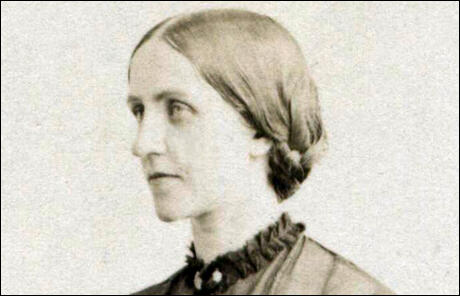
On this day in 1932 Nadezhda Alliluyeva, committed suicide. Joseph Stalin had married Nadezhda, an active members of the Bolsheviks, in 1918. She complained about the way her husband was treating supporters of Leon Trotsky. She also objected to his policy of collectivization that had caused so many problems for the peasants. On 9th November, 1932, at a social gathering with several members of the Politburo. "Nadezhda spoke her mind about the famine and discontent in the country and about the moral ravages which the Terror had wrought on the party. Stalin's nerves were already strained to the utmost. In the presence of his friends he burst out against his wife in a flood of vulgar abuse." That night she committed suicide.
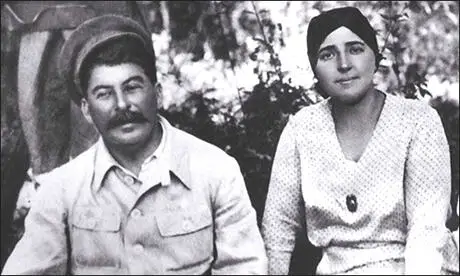
On this day in 1933 David Low upset Adolf Hitler with his cartoon The Difficulty of shaking hands with Gods. Low was responding to the decision by Hitler to the withdrawal of Germany from the Geneva Disarmament Conference in October 1933. Colin Seymour-Ure has pointed out: "As if in a music-hall turn, Low's figures misunderstand their cues. Goebbels, Göring and Hitler, armed with the lily of innocence, distance themselves from the proffered hand of friendship. Litvinov, Simon and Dolfuss (front) look perplexed."
In November, 1933, Low drew a cartoon of a bonfire outside the League of Nations building, with Hitler saying "It worked at the Reichstag - why not here?" Hitler was furious and Low's cartoons were immediately banned from appearing in Nazi Germany. Mussolini took similar action in Italy. However, the cartoon, which was more attack on the cowardice of the League members, now appeared in newspapers all over the world.
David Low was also added to a Gestapo priority list of persons to be arrested after invasion. In has been argued that "more than anyone, Low defined the image of Hitler which the history books perpetuate: a strutting figure, with toothbrush moustache and diagonal forelock".
In September, 1937, Percy Cudlipp, the editor of Evening Standard, started refusing to publish Low's cartoons attacking Hitler: "The state of Europe is extremely tense at the present time. That being so, I don't want to publish anything in the Evening Standard which would add to the tension, or inflame tempers any more than they are already inflamed. There are people whose tempers are inflamed more by a cartoon than by any letterpress. So will you please, when you are planning your cartoons, bear in mind my anxiety on this score."
After the war it was revealed that in 1937 the German government asked the British government to have "discussions with the notorious Low" in an effort to "bring influence to bear on him" to stop his cartoons attacking appeasement. Edward Wood, Lord Halifax, the foreign secretary, went to see Low: "When Lord Halifax visited Germany officially in 1937, he was told that the Führer was deeply offended by Low's cartoons of him, and that the paper in which they appeared, the Evening Standard, was banned in Germany.... On Halifax's return to London, he summoned Low and told him that his cartoons were impairing the prime minister's policy of appeasement."
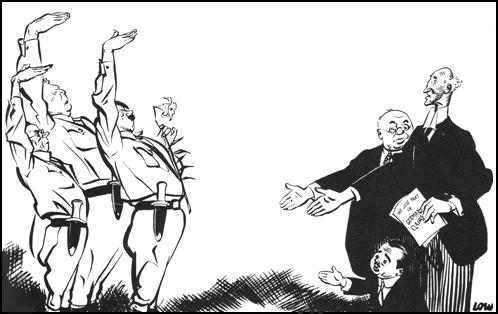
On this day in 1937 Ramsay MacDonald died. MacDonald became leader of the Labour Party in 1911. He was a committed socialist at the time. Along with Keir Hardie he opposed British involvement in the First World War. In one speech he argued: "Out of the darkness and the depth we hail our working-class comrades of every land. Across the roar of guns, we send sympathy and greeting to the German Socialists. They have laboured increasingly to promote good relations with Britain, as we with Germany. They are no enemies of ours but faithful friends."
After the war MacDonald became less radical. John Bruce Glasier argued that Ramsay MacDonald gave him the impression that he had lost faith in socialism and wanted to move the Labour Party to the right: "I noticed that Ramsay MacDonald in speaking of the appeal we should send out for capital used the word 'Democratic' rather than 'Labour' or 'Socialist' as describing the character of the newspaper. I rebulked him flatly and said we would have no 'democratic' paper but a Socialist and Labour one - boldly proclaimed. Why does MacDonald always seem to try and shirk the word Socialism except when he is writing critical books about the subject."
The German journalist, Egon Ranshofen-Wertheimer, pointed out: "The party which before the war had been a definite proletarian organisation in spite of intellectual leadership, became overrun by ex-Liberals, young-men-just-down-from-Oxford guiltless of any socialist tradition, ideologists and typical monomaniacs full of their own projects."
This conservatism was reflected during his time as Prime Minister (22 January – 4 November 1924) and (5 June 1929 - 7 June 1935). When he established a National Government in August 1931 MacDonald was only able to persuade three other members of the Labour Party to serve under him: Philip Snowden (Chancellor of the Exchequer) Jimmy Thomas (Colonial Secretary) and John Sankey (Lord Chancellor). MacDonald, Thomas and Sankey were all expelled from the Labour Party.
On 8th September 1931, the National Government's programme of £70 million economy programme was debated in the House of Commons. This included a £13 million cut in unemployment benefit. All those paid by the state, from cabinet ministers and judges down to the armed services and the unemployed, were cut 10 per cent. Teachers, however, were treated as a special case, lost 15 per cent. Tom Johnson, who wound up the debate for the Labour Party, declared that these policies were "not of a National Government but of a Wall Street Government". In the end the Government won by 309 votes to 249.
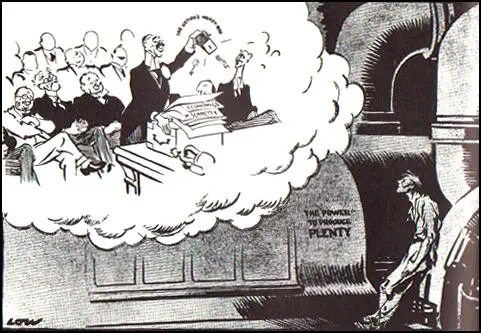
On this day in 1938 Kristallnacht (Crystal Night) in Nazi Germany took place. Joseph Goebbels wrote an article for the Völkischer Beobachter where he claimed that Kristallnacht was a spontaneous outbreak of feeling: "The outbreak of fury by the people on the night of November 9-10 shows the patience of the German people has now been exhausted. It was neither organized nor prepared but it broke out spontaneously." However, Erich Dressler, who had taken part in the riots, was disappointed by the lack of passion displayed that night: "One thing seriously perturbed me. All these measures had to be ordered from above. There was no sign of healthy indignation or rage amongst the average Germans. It is undoubtedly a commendable German virtue to keep one's feelings under control and not just to hit out as one pleases; but where the guilt of the Jews for this cowardly murder was obvious and proved, the people might well have shown a little more spirit."
On 11th November, 1938, Reinhard Heydrich reported to Hermann Göring, details of the night of terror: "74 Jews killed or seriously injured, 20,000 arrested, 815 shops and 171 homes destroyed, 191 synagogues set on fire; total damage costing 25 million marks, of which over 5 million was for broken glass." It was decided that the "Jews would have to pay for the damage they had provoked. A fine of 1 billion marks was levied for the slaying of Vom Rath, and 6 million marks paid by insurance companies for broken windows was to be given to the state coffers."
David Buffum, the American Consul in Leipzig, reported: "The shattering of shop windows, looting of stores and dwellings of Jews took place in the early hours of 10 November 1938.... In one of the Jewish sections an 18 year-old boy was hurled from a three-story window to land with both legs broken on a street littered with burning beds. The main streets of the city were a positive litter of shattered plate glass. All of the synagogues were irreparably gutted by flames. One of the largest clothing stores was destroyed. No attempts on the part of the fire brigade were made to extinguish the fire. It is extremely difficult to believe, but the owners of the clothing store were actually charged with setting the fire and on that basis were dragged from their beds at 6 a.m. and clapped into prison and many male German Jews have been sent to concentration camps."
The day after Kristallnacht, the Nazi Party held a rally in Nuremberg. Around 100,000 people attended in order to hear the anti-Jewish invective of Julius Streicher, the man known to be the most rabid anti-semite in Nazi Germany. "Photographs of the rally show relatively few men in uniform. Instead, the faces of ordinary Germans - that is, the collective face of Nuremberg and of Germany - can be seen there conveying their ardent support for their government and the eliminationist program."
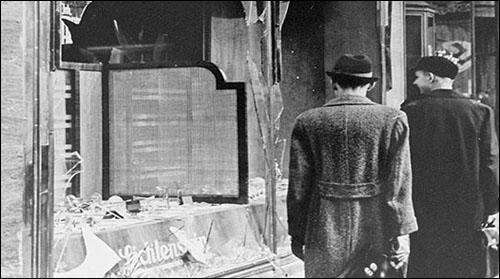
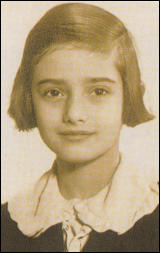
On this day in 1938 eight-year-old Inge Neuberger witnesses Nazi atrocities. Neuberger, the daughter of a Jewish factory owner, was born in Mannheim, Germany, in 1930. Inge later recalled that on the evening of 9th November, 1938: "My family, which consisted of my father, mother, my maternal grandmother, my older brother, and I were eating dinner when there was a knock at our front door. I can still picture my father's somewhat ruddy complexion turning white, and the quizzical look that passed between my parents. My mother said she would answer the door, and I went with her. There stood a German woman who worked in our home as part-time housekeeper. When my mother asked her what she was doing there, she answered that my father had to leave the house the next day. I recall her saying that something was going to happen, although she did not know what. And she left as quickly and quietly as she had come."
The woman was warning the Neuberger family of what became known as Kristallnacht. "I met my cousin and we walked to school together. I remember that it was a relatively long walk, and as Jews we could not ride the trolley car. We walked along a broad, pedestrian street and came upon an 'army' of men marching four or more abreast. They wore no uniforms but were dressed as working men would have been. Each had a household tool over his shoulder. I remember seeing rakes, shovels, pickaxes, etc., but no guns. My cousin and I were puzzled by this parade, and watched for some minutes. Then we continued on to school."
When she reached the Mannheim Synagogue she discovered it had been very badly damaged. Rolf Dormann, a young Catholic teenager, later remembered witnessing the destruction of the main synagogue, "when furniture was thrown out of the upper windows and Jews were beaten and forced into the street". Recalling the events thirty-five years later, he "could still hear the crash of furniture and still felt shame".
Inge Neuberger later recalled: "We saw a bonfire in the courtyard in front of the synagogue. Many spectators were watching as prayer books and, I believe, Torah scrolls were burned. The windows had been shattered and furniture had been smashed and added to the pyre. We were absolutely terrified. I am fairly certain that the fire department was in attendance, but no attempt was made to extinguish the flames. We ran back to my home to tell my mother what we had seen. She told us that we would leave the apartment and spend the day in Luisenpark, a very large park in town. We spent the entire day in the park, moving from one area to another."
Reinhard Heydrich ordered members of the Gestapo to make arrests following Kristallnacht. "As soon as the course of events during the night permits the release of the officials required, as many Jews in all districts, especially the rich, as can be accommodated in existing prisons are to be arrested. For the time being only healthy male Jews, who are not too old, are to be detained. After the detentions have been carried out the appropriate concentration camps are to be contracted immediately for the prompt accommodation of the Jews in the camps."
Inge Neuberger remembers her father going into hiding and "spent the next six weeks in the attic of our building. I was given strict orders that if anyone asked about my father's whereabouts I was to say that I didn't know where he was. I remember how strongly this was impressed on me."
The family managed to travel to Italy. An uncle in the United States sent the necessary affidavits and money and Inge and her father left in March 1940. Her mother and brother left six weeks later. After attending college Inge became a school teacher.
Inge Neuberger (Janet Ettelman) retired in 1995 and carried out work for the The Holocaust Memorial and Tolerance Center. "I had been teaching about the Holocaust and as a survivor was very eager to participate as a volunteer... The Center has been an extremely important part of my life since that time. When I speak to school groups about my personal experiences in Germany and see the reaction of the students, it makes me… recognize that passing on my story is indeed an important tool for this next generation.”
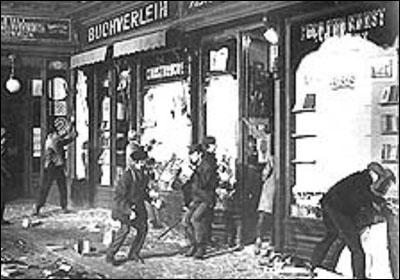
On this day in 1953 Louise Bowen died. Bowen was born in 1859. The widow of a rich businessman, Joseph Bowen, she was a major financial contributor to the Hull House Settlement. This included the money to provide several new buildings and the summer camp, the Bowen Country Club, in memory of her dead husband. Jane Addams estimated that over the years Bowen provided over three quarters of a million dollars to the Hull House project.
Bowen was the leader of the Hull House Women's Club and president of the Juvenile Protective Association, and this stimulated her into carrying out an investigation into the African Americans living in Chicago. The report, The Colored People of Chicago was published in 1913. Bowen was a long-time trustee, treasurer and finally president of the Hull House Association board of trustees. After the death of Jane Addams in 1935 she was the most important figure in the Hull House Settlement. However, her increasingly dogmatic manner led to the resignations of the next head resident that followed Addams, Adena Miller Rich (1935-1937).
Rich was replaced by Charlotte Carr. She was an active trade unionist who held radical political views and this led to clashes with Bowen. In 1943 Carr was fired when she refused to resign from the left-wing Union for Democratic Action. A report in Time Magazine on 11th January, stated: "Hull House's founder, Jane Addams, in the 19th Century spirit believed in the social adjustment and education of the alien poor. Miss Carr thought that times had changed, that organization and political pressure were now the best ways for slum dwellers to better their lot." Bowen developed a better relationship with the next head resident, Russell Ballard.
